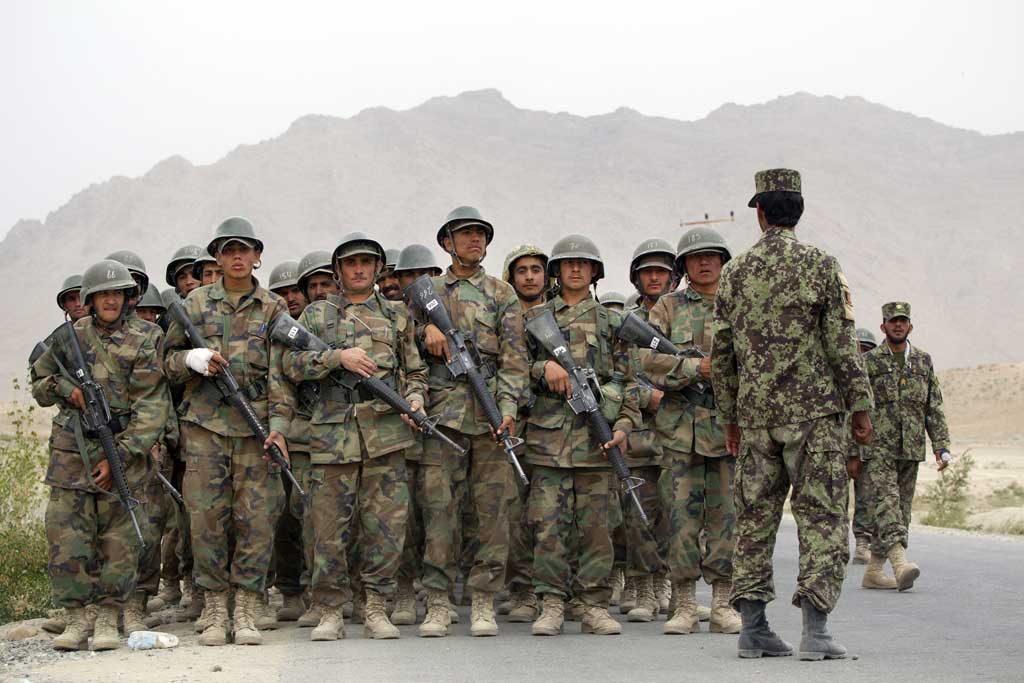Kandak: Fighting with Afghans, By Patrick Hennessey
A searing yet heart-warming soldier's memoir allows us to meet the men of the Afghan army

With roadside bombs and mines taking an increasingly bloody toll on soldiers in Helmand, the British mentors of the Afghan army decided it was time for some intensive refresher training. In searing heat, they took the men of the kandak (battalion) through life-saving drills to identify the lethal threat and mark a safe route with bright orange mine tape.
"A couple of days later a request came into the company sergeant major from the kandak supply sergeant: could they have some more supplies of mine tape? Significant looks were exchanged and smiles played on the lips of the trainers: the sobering lessons of the casualties were starting to sink in," writes Patrick Hennessey. "The mine tape appeared a couple of days later, meticulously wound round the picket fence as a colourful addition to the decorative garden border".
After a veritable invasion of volumes on the Afghan conflict, it would be hard to imagine that there was room on the shelves for another tome but, in his second book, the best-selling author of The Junior Officers' Reading Club fills a gaping chasm. He tells the story of the largely faceless Afghan National Army askar (warriors) who have suffered an even heavier toll during Britain's six-year sojourn in Helmand. For anyone who has worked closely with the ANA, the tape incident beautifully encapsulates the frustrations of British military teams charged with advising the men who, along with their police counterparts, will take over security of the country when most NATO forces withdraw by the end of 2014. But it equally exposes the more charming, human side of its soldiers.
Writing about Forward Operating Base Shawqat, Hennessey describes the Afghan propensity for tending their gardens. While the UK side of the camp was a model of security, the locals opted for more decorative comforts. But one side of Shawqat was simply designed to be an efficient, military base for men who would soon return to their own homes; the other was a permanent garrison for soldiers who had endured years of combat and would continue to do so. Too often the men of the ANA are divided in to two stereotypes – either fearsome warrior or feckless incompetent. Hennessey, his candid, clear prose resonating with affection for those he fought alongside, goes beyond those generalities to talk about the myriad of personalities, soldier or interpreter, that he came to know.
In his first book, the section on Afghanistan praised the courage and self-sacrifice of his fellow Grenadier Guards in Helmand; but in Kandak, they fade into the background and the Afghans come to the fore. The former officer pulls no punches when describing the patronising and dismissive attitude of some Brits who had less chance to work with the ANA.
The book begins with Hennessey's initial deployment as part of the Operational Mentoring Liaison Teams (OMLTs) in 2007. In self-deprecating style, he mocks the awkwardness of British officers at their first meeting with the ANA, "like a junior school disco with boys and girls lined up on opposite sides of the assembly hall". He decries the lazy complaints that this rag-tag bunch from different ethnic backgrounds, clad in a patchwork of borrowed uniforms, "all looked the same", when it was the guardsmen who were immaculate copies of each other.
The book follows his returns to Helmand two and three years later as a journalist, having left the army, and his reunion with old friends. What follows is a moving, humbling and rare account of mutual respect among men who might as well be from different galaxies but have forever bonded through battle. In unfettered, unpretentious prose, he gives a searing account of the death of his favourite Afghan company commander, a man of ferocious, insane bravery.
Kandak does not attempt to canonise the men of the ANA and it is peppered with amusing anecdotes of their chaotic, quixotic ways, as well as tales of incompetence and betrayal. But it is equally full of heart-warming descriptions of their generosity, devotion to their homeland and self-sacrifice.
The British byword in Helmand today is "transition", the gradual handing-over of responsibility to Afghan security forces so we can extricate ourselves from a decade-long conflict that has cost us dearly. Kandak should be required reading for anyone trying to understand the magnitude of that task, as well as the people we will leave behind.
Subscribe to Independent Premium to bookmark this article
Want to bookmark your favourite articles and stories to read or reference later? Start your Independent Premium subscription today.

Join our commenting forum
Join thought-provoking conversations, follow other Independent readers and see their replies